Fuzhou and Tacoma celebrate a longstanding friendship that continues to strengthen through trade, youth exchanges
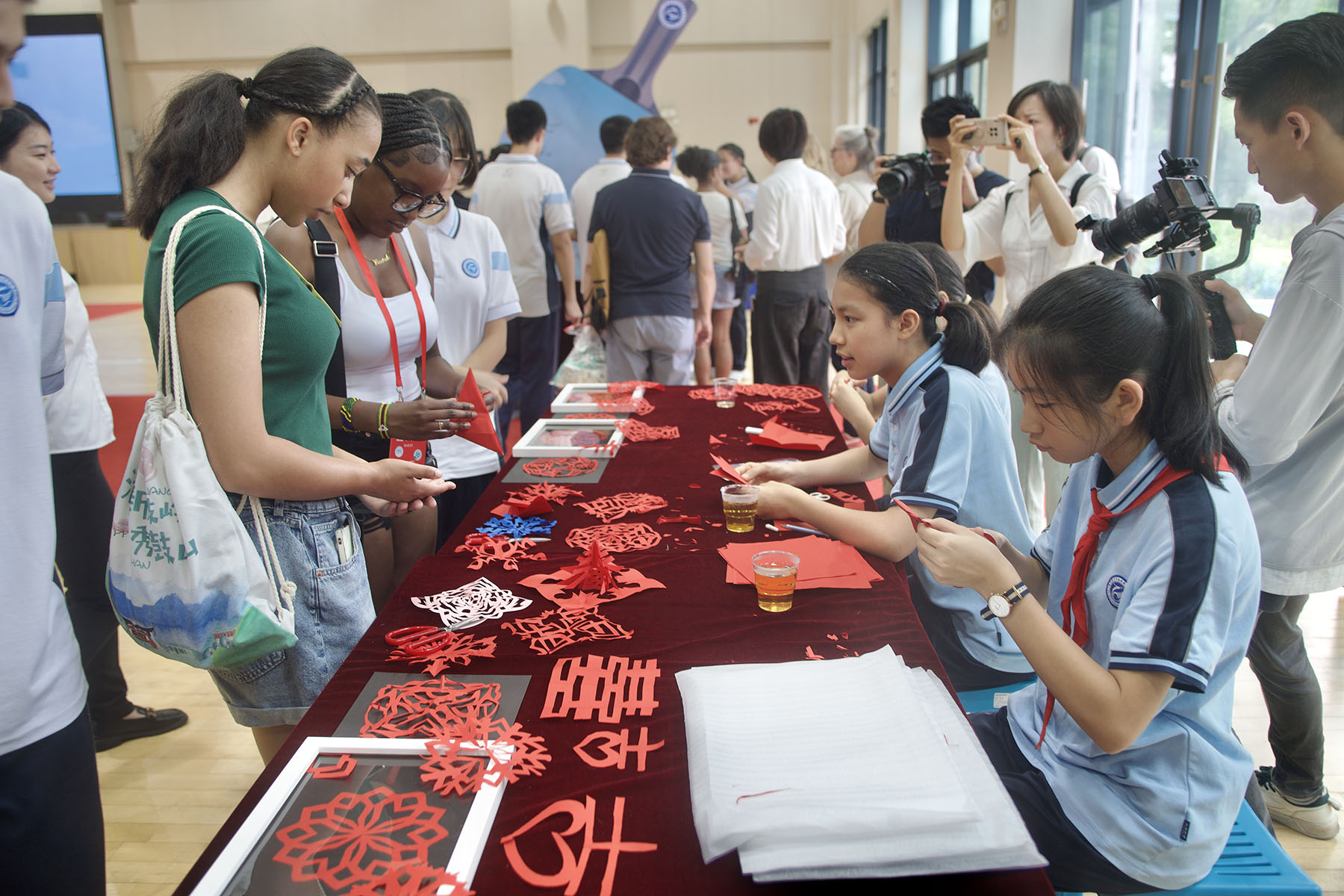
Editor’s note: Amity between the people holds the key to sound state-to-state relations. China Daily will come out with a series of stories highlighting Chinese cities’ special connections with sister cities, mutual understanding, trust and friendship between peoples of different countries and cultural backgrounds, and shining light on “city diplomacy”.
It is a relationship forged by history, geography, and trade — among other things — and symbolized by a certain fragrance and the way it is produced.
That fragrance emanates from the scenting process of jasmine tea, an intangible cultural heritage of China and a specialty of Fuzhou, the capital of Fujian province.
Fuzhou’s jasmine tea is a delicate blend of green tea leaves and jasmine blossoms, and scenting the tea involves mixing jasmine buds with tea leaves overnight. In the morning the flowers are removed and the leaves dried. This process is repeated up to nine times to achieve a rich, fragrant jasmine tea.
When Victoria Woodards, mayor of the city of Tacoma in the US state of Washington, visited Fuzhou in June, she was invited to witness for herself part of this exquisite process.
“If you think about it, the scenting process symbolizes building a friendship again and again because you can’t just do it once, as it doesn’t last,” Woodards said. “If you continue to do it over and over again, then the bond is stronger, just like the fragrance gets stronger.”
This marriage of taste and fragrance in tea is as serendipitous as the Pacific Ocean currents that bring Fuzhou and Tacoma together despite the 10,000 or so kilometers that separate them. In fact, so kindred are the two cities’ spirits that 30 years ago they decided to formalize their relationship by becoming sister cities.
One of those who contributed to establishing that relationship was Connie Bacon, a former commissioner for the Port of Tacoma and a former executive director of the World Trade Center Tacoma. It was she who in October 1993 welcomed to the city a visiting delegation from Fuzhou.
One member of that delegation was then Fuzhou Party Secretary Xi Jinping.
Bacon invited him to her home for dinner.
That visit, including the close personal relationships it cultivated, bore fruit a year later when Bacon signed the sister-city agreement with Fuzhou on behalf of Tacoma.
In the years since, the two cities have engaged closely with each other, with about 100 delegations sent to each other between the two sides. Their collaboration covers many areas, including culture, education, sports, and trade.
Trade has been a cornerstone of the relationship, with both cities being important ports for their countries.
“For Tacoma, a leading US seaport for international trade, China is a very important trading partner and has been our No 1 trading partner by volume and value for many years,” said Tong Zhu, chief commercial and strategy officer for the Port of Tacoma and Northwest Seaport Alliance.
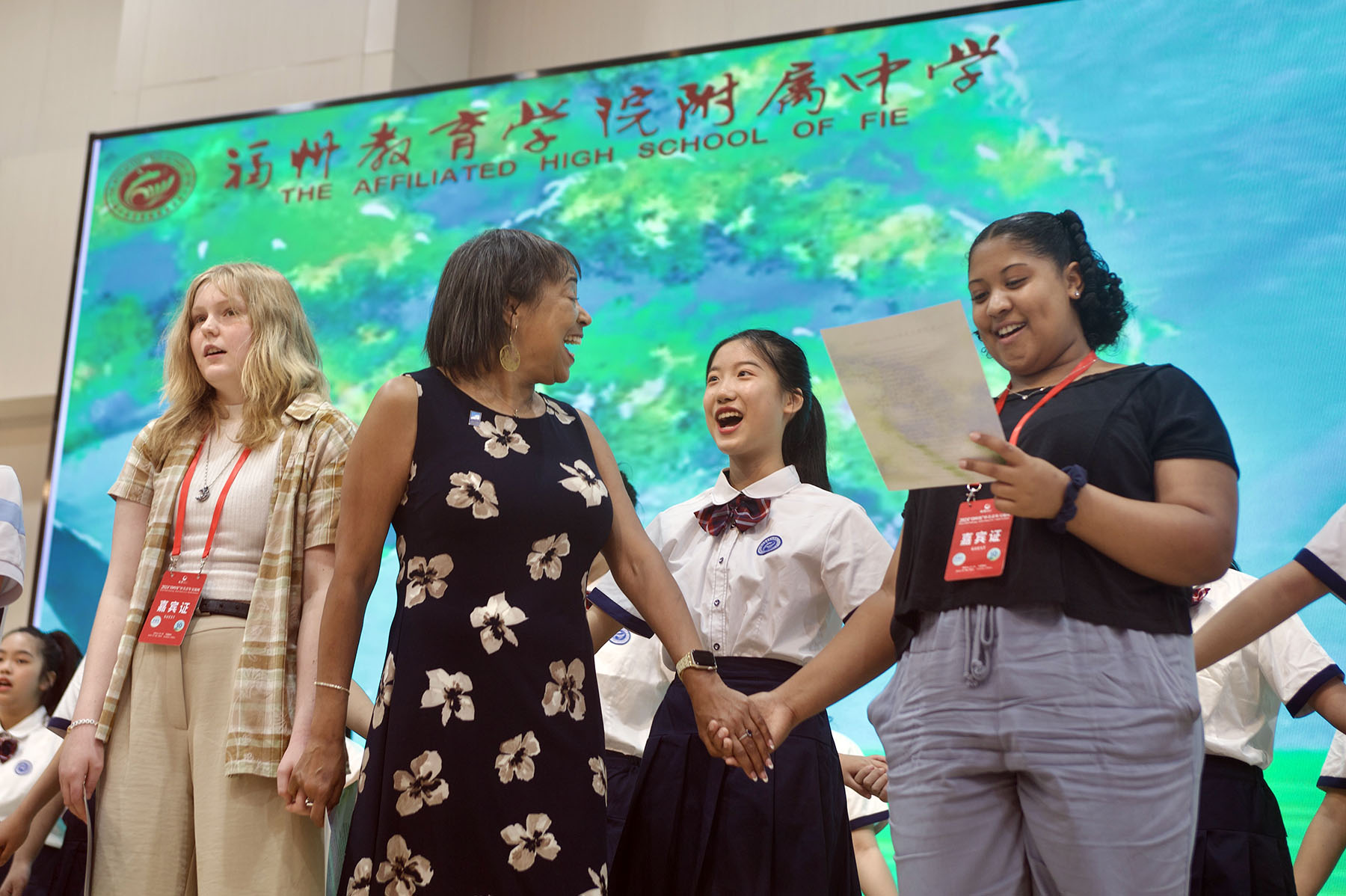
Zhu had worked with Gary Locke, a former governor of Washington state and US ambassador to China from 2011 to 2014, to develop trade with China. Locke himself embodies the close relationship between the state and China, having ancestral roots in Guangdong province, neighboring Fujian, and whose grandfather was among the early Chinese migrants to Washington in the late 1800s.
Trade ties between the two cities became stronger in 2008 with a trade project aimed at helping Tacoma businesses attract Chinese investment and aiding Chinese companies in expanding to the US.
“Working in partnership with the city of Fuzhou and the city of Tacoma, we developed a program based on the sister-city relationship that ultimately led to an exchange of personnel to promote and drive tangible international trade transactions,” Zhu said. “Activities later expanded into attracting inbound foreign direct investment from Fuzhou, and China at large, to the Tacoma area.”
The Tacoma-Fuzhou Trade Office Exchange Program set up in 2008 lasted for 18 months, during which Fuzhou sent three representatives to Tacoma, each serving a six-month term. The project resulted in direct bilateral trade worth $450,000 and facilitated trade agreements totaling $1.57 million, Fuzhou Evening News reported.
Commercial deals signed as a result of the program included exports of wine to Fuzhou and industrial bags to Tacoma, Zhu said.
During the pandemic, based on an earlier agreement between the two cities, the World Trade Center Tacoma and the Administrative Committee of Fuzhou Area of China (Fujian) Pilot Free Trade Zone held joint virtual trade conferences to match small and medium-sized companies together.
This year, the Asia Pacific Cultural Center in Tacoma signed an agreement with a tea company in Fuzhou to promote jasmine tea in the US, the type of collaboration that “offers an economic development opportunity for us”, Tacoma Mayor Woodards said.
“From an economic development standpoint, we are really focused on technological innovation and collaboration among cities to support more green jobs and low-carbon sustainable development in our communities.”
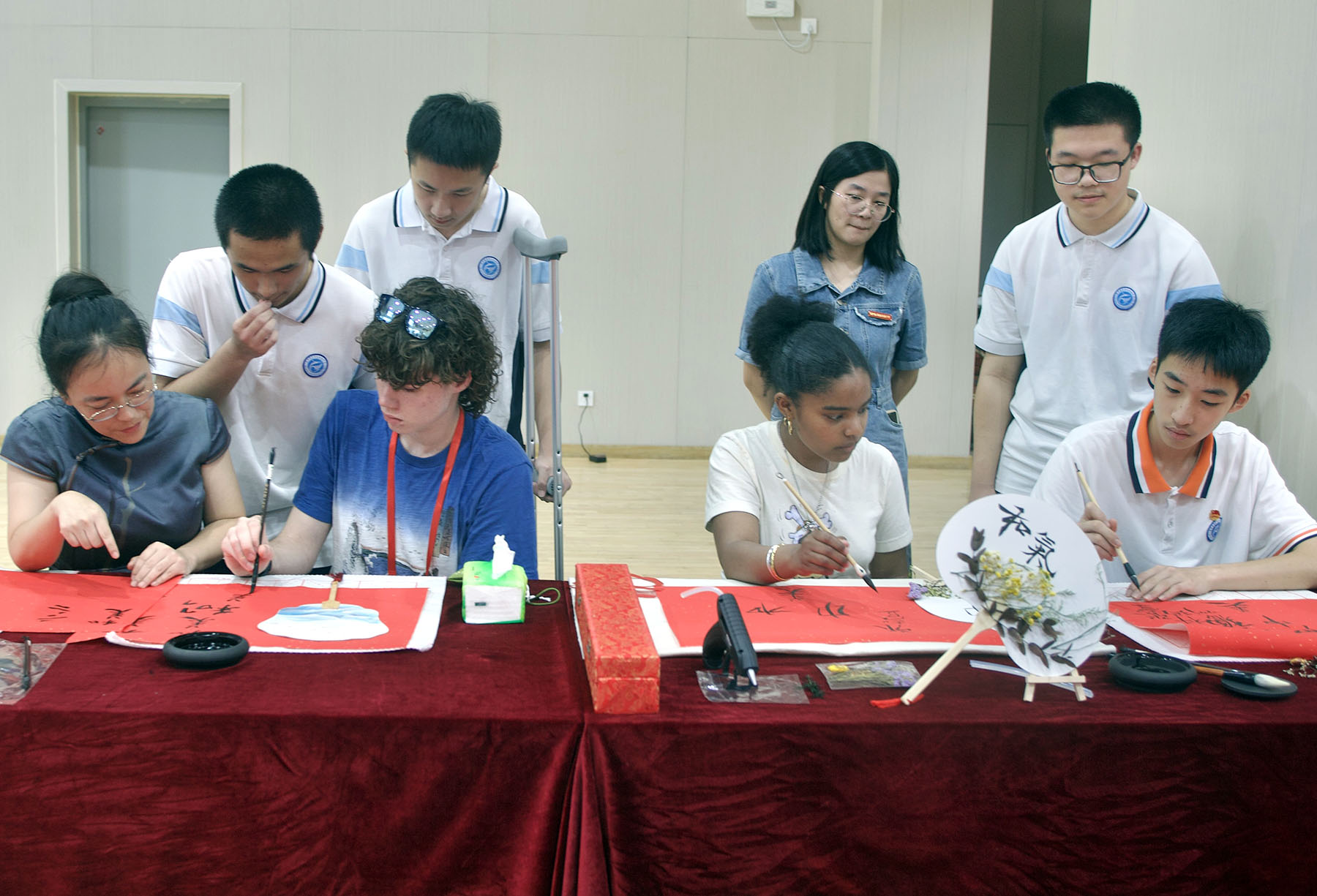
In this respect, she said, “I think we have a lot to learn from Fuzhou and from China.”
In addition to trade, educational exchanges have flourished between the sister cities, fostering long-lasting connections among young people in China and the US.
On Sept 23, 2015, during his first state visit to the US as China’s president, Xi returned to Tacoma. Lincoln High School was selected as the venue, partly because of the sister-city ties and the sister-school relationship between the school and the Affiliated High School of Fuzhou Institute of Education.
At the school, Xi spoke to students, brought a ping-pong table and books on China, and later sent a personal invitation for 100 students to visit China the following year.
“I feel incredibly lucky and grateful for being selected for that trip,” said Rigel Adams, now 23, who was a member of the Lincoln High School group that traveled to China in 2016.
“We did so much in those days, meeting other Chinese students, visiting different schools, and getting to truly experience Chinese culture. It was the experience of a lifetime. After I visited in 2016, I just fell in love with the people and the culture in China. Everyone here is caring and polite, and it’s much more community-focused. It’s very different from the US, and I like it.”
Since that trip, Adams, who recently graduated from university with a bachelor’s degree in science and economics, has been back to China six times and visited many Chinese cities.
“During those trips, I was able to build some personal as well as professional relationships. My hope is to continue expanding those relationships and maybe to one day (turn that) into a business relationship.”
Since 2016, Lincoln High School has frequently arranged visits to China, and the Affiliated High School of Fuzhou Institute of Education has also sent students to attend summer camp exchange activities at Lincoln High School every year before the pandemic.
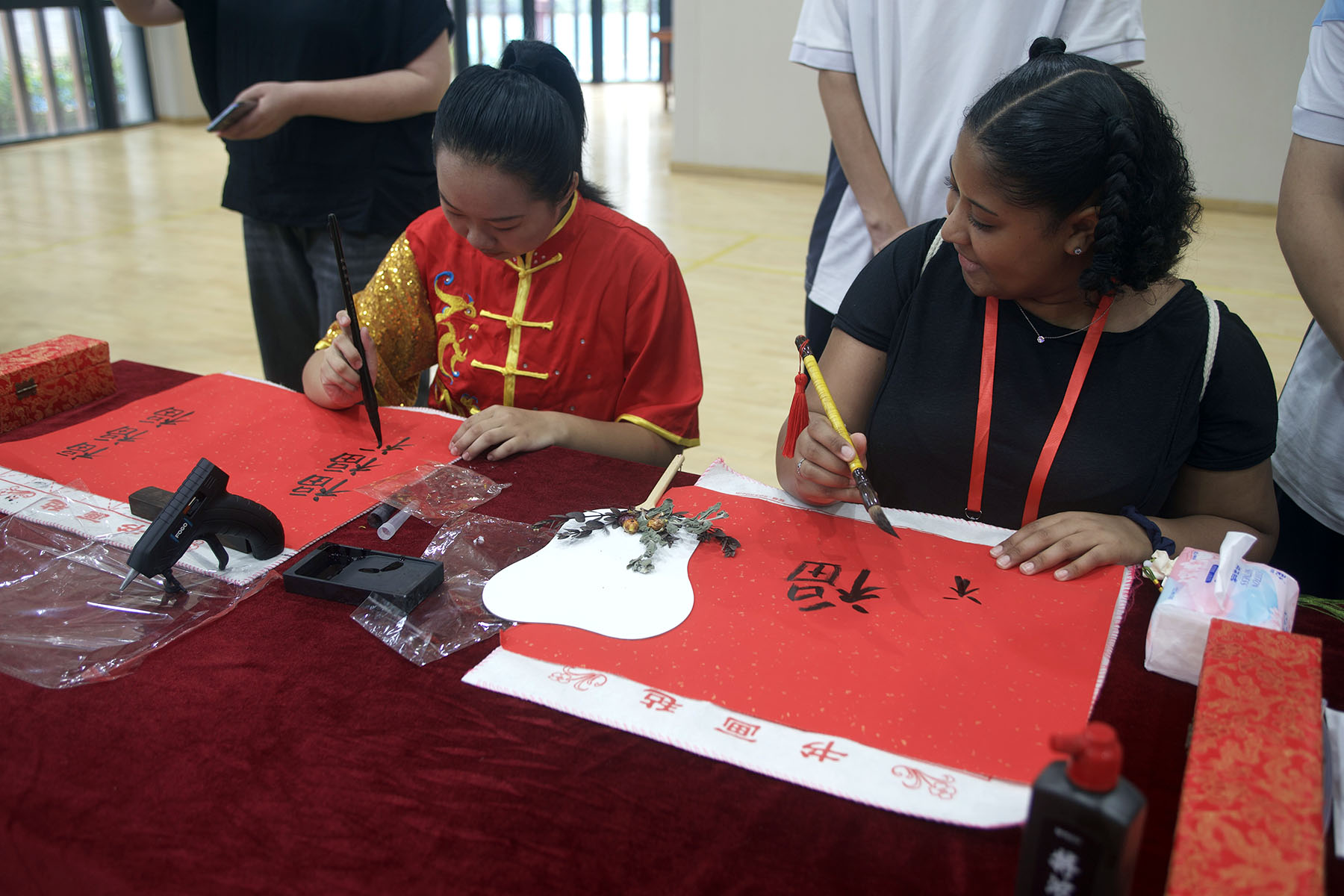
During the pandemic, the offline exchange programs between the two cities had to be put on hold but many initiatives demonstrated how close they had become to one another. Fuzhou and Tacoma began setting up relationships between schools, facilitating exchanges between Chinese students studying English and Tacoma students studying Chinese.
“From 2020 to 2024, our school exchanged letters with Lincoln High School over 50 times. In 2023, we relaunched our Pen Pal project with Lincoln High School, pairing 35 of our high school freshmen and sophomores with 38 students from Lincoln High School studying Chinese,” said Wei Jian, head of the Affiliated High School of Fuzhou Institute of Education.
The school hosted a Tacoma student group led by Mayor Woodards in June and another US student group in July.
“Through diverse activities such as traditional Chinese cultural classes including calligraphy and paper-cutting and friendly sports matches like basketball and rugby, such visits help to strengthen understanding and friendship between Chinese and American youth, laying a solid foundation for future relations,” said Wei.
“So often our young people live in their communities and they don’t know about the entire world,” Woodards said. “I think when they get out of their surroundings and have an opportunity to travel across the world and meet other young people who are just like them, it makes not only our cities a better place, but it makes our world a better place.”
The sister-cities program is about promoting peace through people, and the idea is that the more people know about communities worldwide, the more they understand that we are more alike than we are different, she said.
At the end of her one-week Fuzhou trip in June, Woodards marveled at the similarities between the two cities. Fuzhou’s green surroundings remind her a lot about Washington, which carries the moniker the “Evergreen State”, she said.
“I can see why 30 years ago the man who I called my father, Harold Moss, the mayor of Tacoma at the time, would make this sister-city relationship with Fuzhou because we have so much in common … I hope that in 30 years from now someone from the city of Tacoma will be here in Fuzhou celebrating the 60th anniversary of our sister-city relationship.”
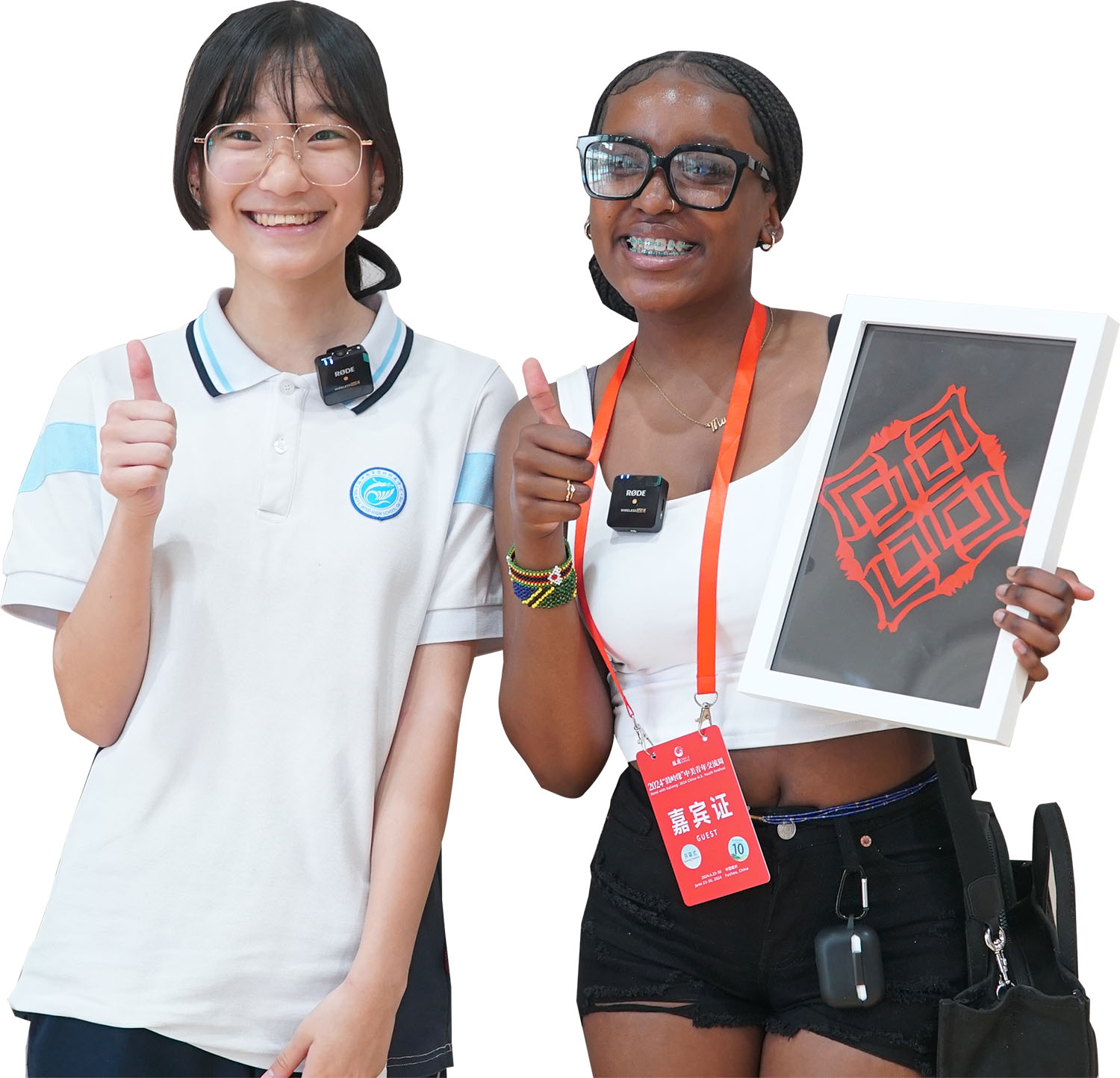
On July 19, the sixth US-China Sister Cities Summit was held in Tacoma. During the summit, Chinese Ambassador to the United States Xie Feng said that serving as bridges for mutual understanding and trust, the sister-city relationships have nurtured goodwill between the two peoples, and injected vigor into China-US relations.
“The closer subnational exchanges and cooperation are, the more solid the popular foundation for China-US relations will be, and the greater room we will have for taking this relationship forward,” said Xie.
The significance of sister-city relationships is often underreported and not well understood by people from both countries, said Wang Xiaofeng, director of international cooperation at the Center for China and Globalization, a Chinese think tank.
“Sister-city relationships have transcended symbolic gestures to deliver substantial benefits and created a dynamic and multifaceted connection between China and the US. These partnerships have facilitated economic growth through increased trade and investment opportunities and cultural exchanges that foster mutual understanding,” she said.
“City-level exchanges through sister-city programs can help ease bilateral mistrust between China and the US by fostering direct, people-to-people interactions that build mutual understanding and respect,” said Wang.
“By focusing on these tangible and positive interactions, sister cities can reduce stereotypes and misconceptions, paving the way for a more constructive bilateral relationship,” she said.
Yang Jie in Fuzhou contributed to this story.
Contact the writers at yangran1@chinadaily.com.cn


